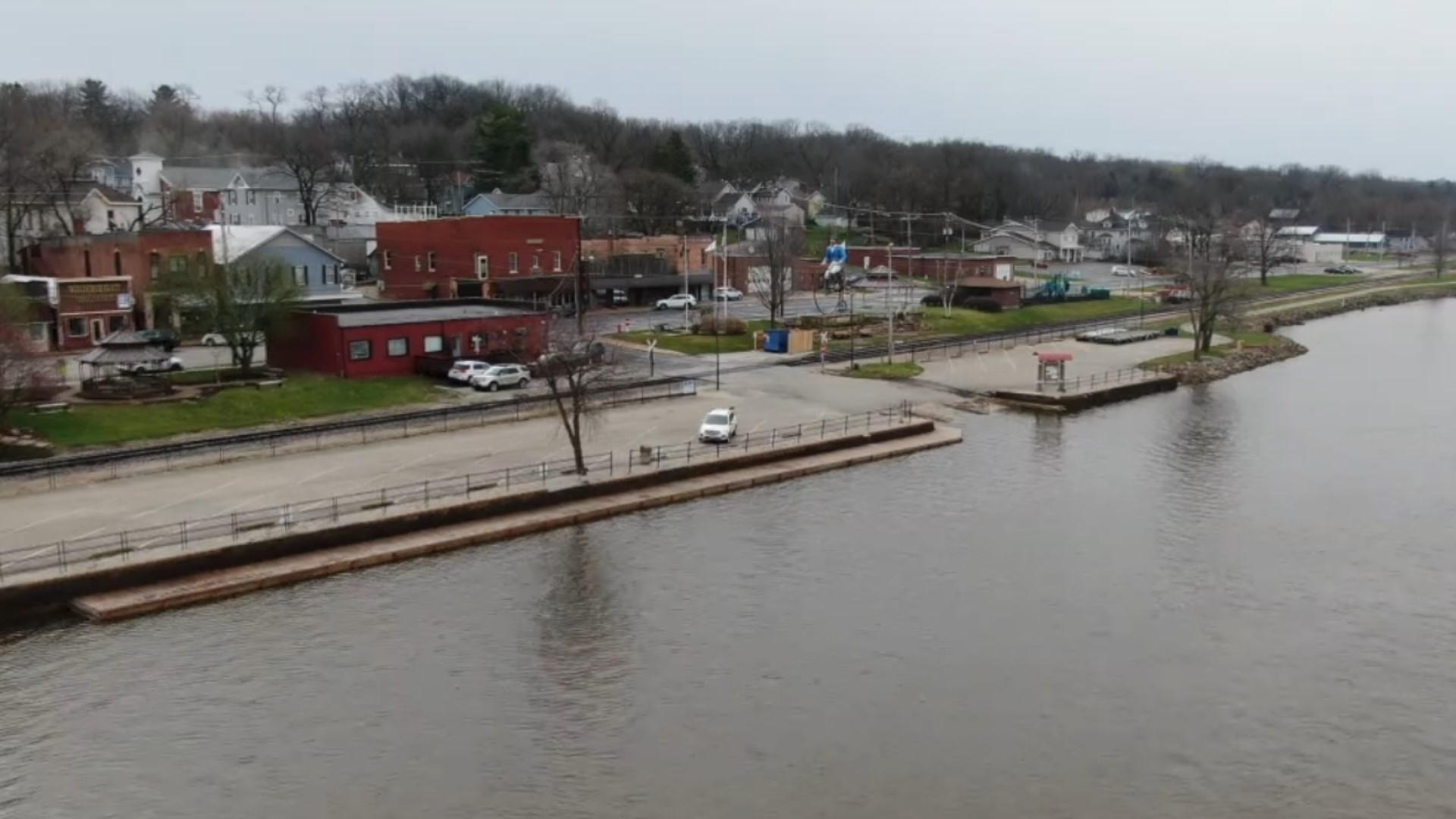PORT BYRON, Ill. — The village of Port Byron is considering alternative water sources after the Illinois EPA found higher-than-normal levels of the mineral manganese in all three of the village's wells.
While village officials maintain there is little risk to public safety at this time, the village has begun looking at two main alternatives, including buying water from another town or building a new water treatment plant. Both options are estimated to cost several million dollars.
In December. the state EPA alerted the village that its water was testing high for manganese. State standards allow for up to 0.15 milligrams of the mineral per liter of water. Port Byron's water is consistently testing between 0.18 and 0.20 milligrams per liter.
Manganese is a naturally occurring mineral that's harmless in small quantities, but the state said prolonged or intense exposure, especially in children, can impact one's nervous system, memory and motor skills. It can also stain plumbing and laundry and may produce an unpleasant taste when used in cooking or beverages such as coffee or tea.
Now, the state has placed Port Byron on a restricted status list preventing the village from adding on any new water mains until a new water source is established.
Just under 500 households are hooked up to Port Byron's water, Mayor Barbara Cray said.
During the village's Infrastructure Rehabilitation Development Committee meeting on April 18, the possibility of a new water treatment plant was discussed.
Early estimates from the engineering firm MSA Professional Services, Inc. put the project at $4.6 million. If chosen, village officials said the plant would be built by the current water tower on Cherry Street.
The other option would be to buy water from a nearby town, such as East Moline. But doing so would require the instillation of a new water pipe, which could prove to be just as if not more expensive than a new plant. Some on the village's infrastructure committee also worried about relinquishing water control to another municipality.
"It's going to be more expensive," said Wayne Oney, Port Byron's financial manager. "And you have very little control over your cost. Once you make that decision to do it, it's hard to come back from it."
The village is also exploring other options in an attempt to find an easier, cheaper solution, but Mayor Cray warned the high price tag might be unavoidable.
"We need to have a way to correct the manganese," she said. "It's not easy. It's not palatable to have to spend that kind of money. But sometimes you just have to move forward with what's in the best interests."
In the eight years he's been on village boards, Oney said he couldn't recall another singular project that cost Port Byron so much.
Port Byron's 2020-2021 budget reported $272,625 total water revenue and $114,264 water expenses.
To complicate matters, Oney said the village has been unsuccessful thus far in acquiring grants to help fund the project. However, he said the water source needs to be switched with or without the financial boost.
"We're working as if we won't get a grant," he said. "This won't be the criteria that'll either kill it or not, because we really have to become compliant. And so it doesn't matter."
"Would you call it in the budget? I don't think so. But we have to address needs as they come up," Cray said. "Obviously, our citizens are the number one priority, so we figure it out. We have to figure out ways to deal with it."
Village officials said it'll be a few months before a final decision on the future of Port Byron's water is made. MSA estimates put the end of construction in 2024.

